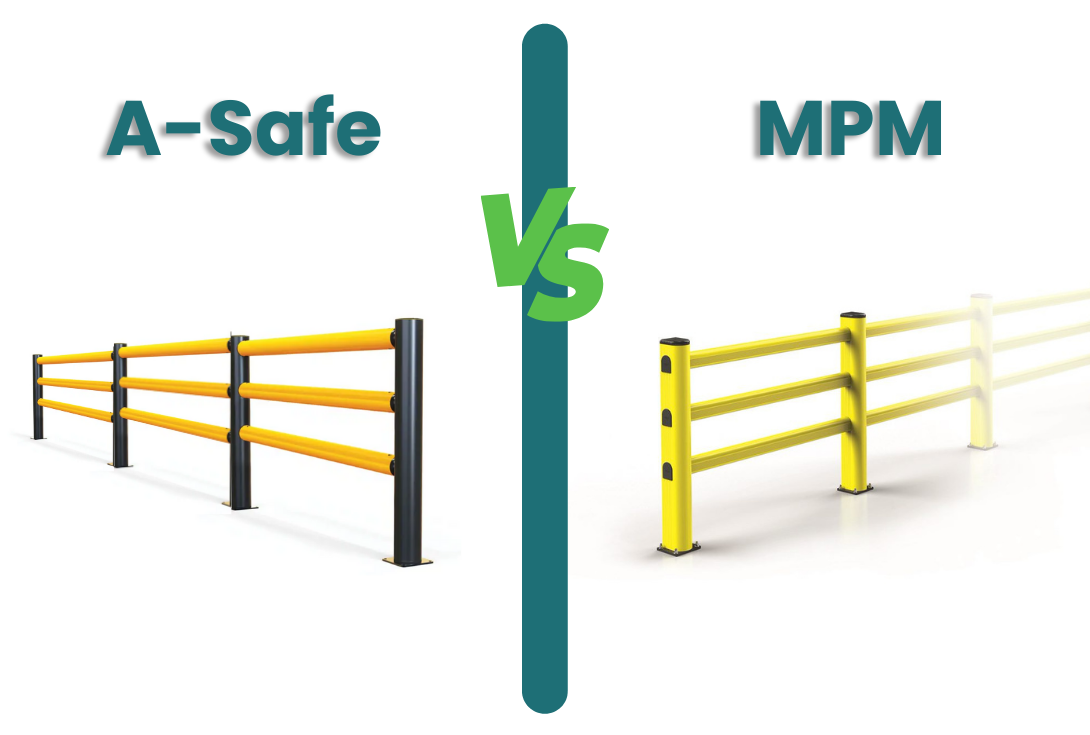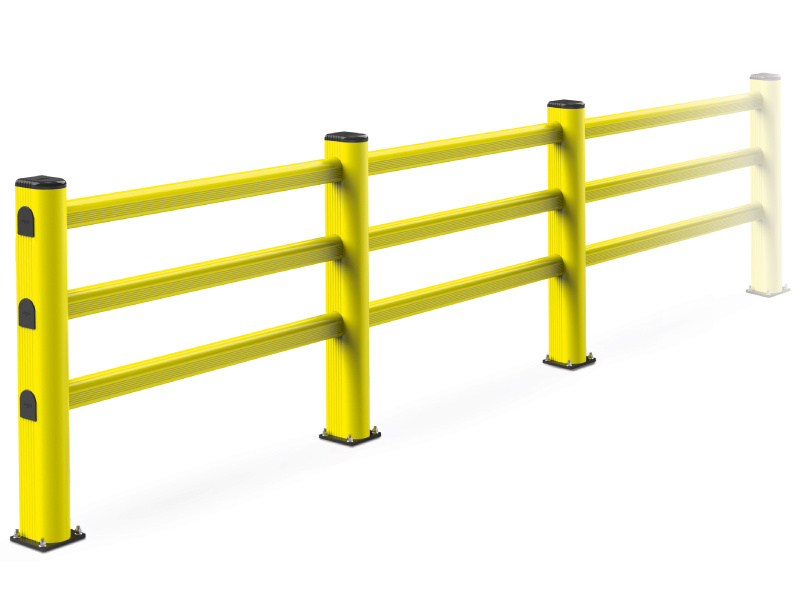Are our Barriers PAS 13 compliant and are they independently tested?
 By
Damian White
·
3 minute read
By
Damian White
·
3 minute read
Are our Barriers PAS 13 compliant and are they independently tested?
6:52
When it comes to safety and compliance in the world of protective barriers, understanding the standards is crucial. With so many products on the market making bold claims, how do you know which ones truly meet industry requirements? MPM Protections has emerged as a strong contender in this space, but questions remain about their adherence to PAS 13—a critical benchmark for performance. Adding another layer of credibility, there's TUV testing to consider. Are these safety barriers not only compliant with PAS 13 but also independently validated? Let’s dive into what makes MPM an intriguing player and explore whether they stand up to scrutiny regarding these important standards.
Who is MPM protections?
MPM Protections is a renowned manufacturer specialising in safety barriers and protective solutions. With years of industry experience, they have built a reputation for delivering high-quality products designed to meet rigorous safety standards.
Their focus extends across various sectors, including construction, logistics, and industrial applications. MPM’s innovative designs aim to enhance workplace safety while minimizing risks associated with potential accidents.
The company prides itself on leveraging cutting-edge technology in product development. This commitment ensures that their barriers are not only effective but also adaptable to different environments and needs.
By continuously investing in research and development, MPM remains at the forefront of the protective solutions market. Their mission revolves around creating safer spaces for workers without compromising efficiency or functionality.
What is Pas 13?
PAS 13, or Publicly Available Specification 13, is a crucial benchmark in the field of vehicle restraint systems. Developed by the British Standards Institution (BSI), it focuses on ensuring that warehouse safety barriers effectively protect both vehicles and pedestrians.
In the words of the PAS13 document itself, PAS13 should be considered as a guide or a code of practice and not a specification however it outlines performance requirements for barrier systems used in factories and warehousing, providing guidelines for their design and testing. Compliance with PAS 13 means that these barriers can withstand certain impact forces while minimising damage to vehicles and reducing injury risk to individuals.
The guide emphasizes robustness, highlighting how materials should endure harsh conditions without compromising effectiveness. By adhering to PAS 13, manufacturers demonstrate their commitment to safety and quality assurance within the industry.
Understanding these specifications is vital for anyone involved in road infrastructure projects or seeking reliable protection solutions.
Are MPM barriers compliant with PAS 13?
MPM barriers are crafted with safety and reliability at their core. They are designed to meet various industry standards, including PAS 13.
PAS 13 sets out specific performance criteria for warehouse traffic management systems. Compliance ensures that these products can effectively manage vehicle impacts while minimizing risk to pedestrians and infrastructure.
MPM has invested significant effort in aligning its barriers with the rigorous demands of this standard. This means they undergo comprehensive assessments to verify adherence to PAS 13 specifications.
When you choose MPM barriers, you're opting for enhanced protection that meets established benchmarks in safety and functionality. Their commitment speaks volumes about their dedication to quality assurance within the industry.
The big question then is are MPM barriers tested to past 13 standards? With the completion of the sledge test last year, this means that MPM are able to fully test all their barriers the recommended sledge test, the recommended pendulum test and the two forked prong test, however as with all testing in all industries, in-house testing is only half of the story.

What is TUV?
TUV refers to a group of technical inspection associations based in Germany. It stands for "Technischer Überwachungsverein," which translates to Technical Inspection Association. Established over a century ago, TUV has built a reputation for ensuring safety and quality.
Their primary role is to evaluate products, systems, and services for compliance with strict standards. This includes everything from machinery to electronic devices. Organizations seek TUV certification as it signifies reliability and adherence to international regulations.
The rigorous testing process involves comprehensive assessments conducted by trained professionals. These experts examine various aspects such as performance, safety, and environmental impact.
Being certified by TUV not only enhances product credibility but also instills trust among consumers. As industries evolve, TUV remains at the forefront of innovation, continuously adapting its standards to meet emerging challenges in technology and sustainability.
Have MPM Barriers been independently tested by TUV?
When manufacturers perform their own in-house testing, very often they will select a set of data that makes their product look good rather than taking The overall average. This happens in many industries for example does your car get anything like the fuel efficiency manufacturers claim? With flexible warehouse barriers, this is a safety critical product and therefore these types of products should all be independently tested by a third-party test house
MPM Protection takes this seriously, which is why their barriers have undergone rigorous evaluation by TUV.
TUV is a globally recognized organization that specializes in quality assurance and safety certification. Their reputation for thorough assessments means that any product carrying a TUV mark has met stringent standards for performance and durability.
MPM Barriers being tested by TUV ensures they not only comply with industry regulations but also stand up to real-world challenges. This independent verification provides peace of mind for businesses looking to invest in reliable protective measures.
Choosing a barrier system certified by TUV demonstrates due diligence in selecting premium safety solutions. It emphasizes the importance of compliance with PAS 13, ensuring your site remains secure without compromising on The safety of your warehouse.
So you know the standards to which MPM barriers are protected to next question will be which barrier do you require for your factory? Read this article on how to choose your own flexible warehouse barrier.




